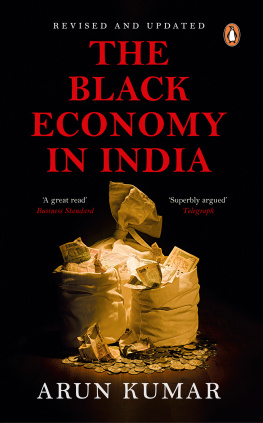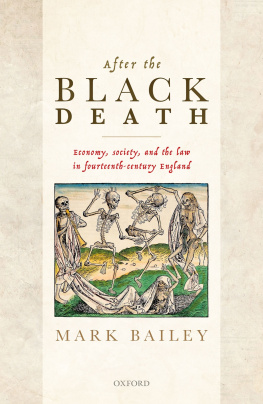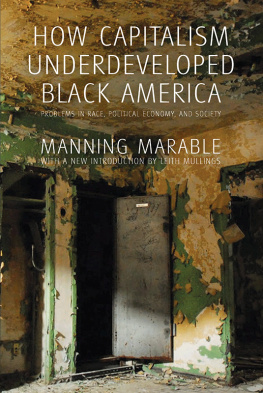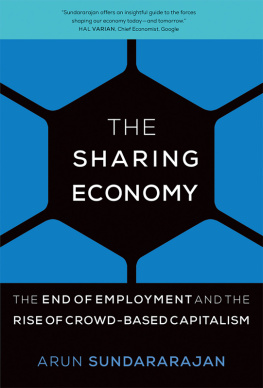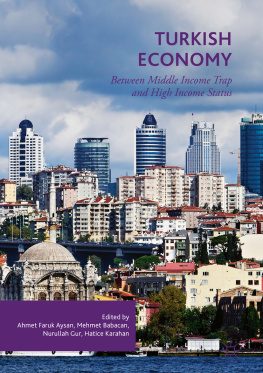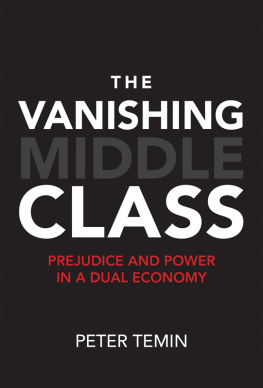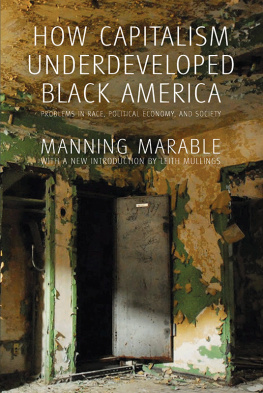Arun Kumar is the countrys leading authority on black economy and has written, studied and lectured extensively on the subject for nearly four decades. He studied at Delhi University, Jawaharlal Nehru University (JNU) and Princeton University, USA. He taught economics at JNU for three decades till 2015. Among his other areas of interest are public finance, development economics, public policy and macroeconomics.
Kumar has written widely on these subjects, both in the popular press and for academic journals. At present, he is the Malcolm S. Adiseshiah Chair Professor at the Institute of Social Sciences, New Delhi.
Foreword
I have known Arun Kumar since 1988. I requested him to help in the drafting of the National Front manifesto and later interacted with him on various public issues, like the New Economic Policies and policies for youth. He always linked these issues to the black economy.
The black economy has interested me for a long time and I have personally believed that it is an evil that needs to be confronted head-on rather than brushed under the carpet. So I welcome the present book which explains how the system works and suggests ways of dealing with it in an integrated manner. This was one of the main issues in the struggle of 1987 that I along with others had launched.
The book in hand, The Black Economy in India, deals with a contemporary reality of India. We are daily bombarded with news about corruption and there have been many books on the subject recently. The present book deals with the subject differently; neither does it sensationalize the subject nor does it present it anecdotally. It treats the subject holistically and presents the black economy as a system, in the process giving us valuable insights into the existing Indian social, political and economic reality. Additionally, it situates the matter in the context of globalizationa reality which is increasingly hitting the people of this country.
Why has the black economy been growing so rapidly in India? Arun Kumar has an interesting formulation for this. He points out that the black economy needs to control politics for the charmed existence of the elite. If the bureaucracy were to refuse to carry out the illegal acts of the political masters and the judiciary acted fairly and firmly in the cases brought before it, illegality would not become systemic, but remain sporadic. It is in this sense that the bureaucracy and the judiciary are clubbed together with corrupt politicians and businessmen to form the triad. It is argued, for the generation of black incomes, the businessmen, the politicians and the bureaucrat have to be involved. Even if one of the three is missing, there can be no black income generation. This is the triad (p.146).
Today politicians are hardly looked up to and the independence of the bureaucracy and the judiciary are under great pressure. The system puts a gloss over the illegality of the vested interests. As a result, the sense of social justice gets dented and the public becomes cynical, accepting the triad as inevitable. Few have had the courage to speak out as clearly on the subject as Arun Kumar has.
It is universally accepted that India has a free and vibrant press. The media is full of exposs. Why then is it unable to act as a check on the growth of the black economy? The media, Arun Kumar points out, has also got co-opted in the triad. While the media has exposed many a scandal, it has failed to follow them up. There are many examples of honest and upright journalists who are valiantly struggling to expose the ills of society. But there is a growing feeling amongst many in the media that it should not rock the boat and there are rewards held out for good and responsible behaviour. Many of the editors of newspapers are closely linked to the proprietors of the paper. The owners have commercial interests that require favourable policy decisions. Journalists have to be careful in writing their stories so as not to hurt these interests and the smarter ones write stories which protect these interests. Often, there is little commitment behind the exposs, to get to the bottom of frauds, so that most cases end up in a whimper. Even when the system is rocked, it regains its equilibrium very quickly.
After giving a detailed analysis of the causes of the growth of the black economy that are discussed in the existing literature, the author concludes that there is an all-round rise of illegality which erodes the institutions of democracy and enables the black economy to flourish. This is inevitably accompanied by growing criminalization in society and the result is that criminals are increasingly becoming a part of the triad. Thus, it is pointed out, several layers control the Indian State and the whole set-up becomes undemocratic and unrepresentative of the people. Democracy comes to be usurped by those who have nothing to do with the people and more often than not are those who act against the interests of the people.
I agree with Arun Kumar when he says that the solution to the problem of the growing illegality lies in raising public consciousness and making the system transparent and responsive to peoples needs. Anything else, as we have so often seen, only enables the triad to tighten its grip.
One of the consequences of the growing black economy is that the nation appears to be short of resources while actually it is not. We have been hypnotized to believe that we are short of capital. Its a case of first spiriting away the money through corruption and illegalities and then saying that the nation does not have the resources and that it has to inevitably turn outwards for them.
There has been an extensive debate in the literature about failure of policy and governance. The book suggests that it is the black economy which results in policy failure. Not only is there a shortfall in expenditures because of the drain on resources but also due to the ineffective utilization of the expenditures. The result is substandard primary schools, roads, water pipes and all that you consider to be development. Further, investment gets diverted to unproductive sectors, leading to a shortage of savings and real investments. As policy fails, social action gets discredited and the demand for the state to retreat gains legitimacy. As a result, what is usual becomes unusual and what is unusual becomes the usual.
The nation is not short of resources. But because of the existence of the black economy, large chunks of them are wasted as they either remain idle or are siphoned off out of the nation. This stunts growth and erodes the dynamism of the economy. That is why much of the economic activity related to the black economy, as Arun Kumar has so graphically put it, is like

